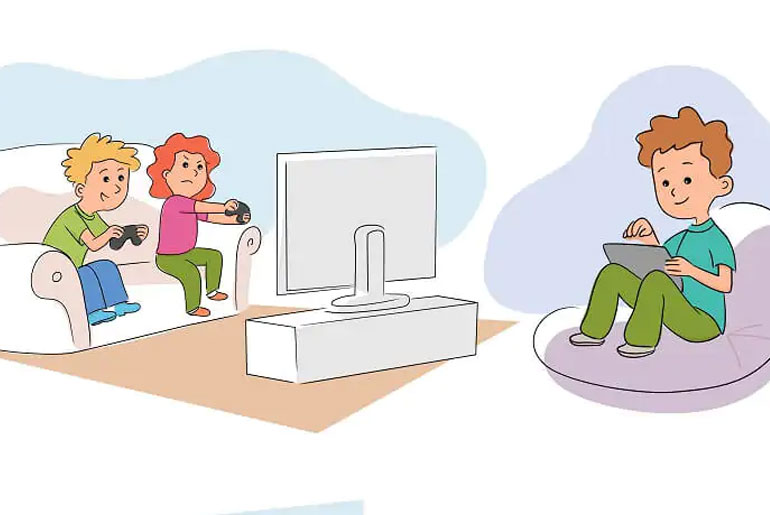The pervasive influence of digital devices in daily life has profound implications, especially concerning leisure activities and children’s wellbeing. With easy access to a multitude of entertainment options, digital gadgets have transformed how children spend their leisure time, often leading to prolonged screen use indoors. In contrast to the pre-digital era where outdoor play was common, today’s children may spend hours engaged with screens, which can adversely affect their mental health & reducing screen time and improved mental wellbeing among children.
A recent study from the University of Southern Denmark highlighted a significant link between reduced screen time and improved mental wellbeing among children. In as little as two weeks of limiting screen exposure to an average of three hours per week, noticeable improvements in behavior were observed. This underscores the importance of managing screen time to promote healthier lifestyles and better developmental outcomes for children in the digital age.
Rapid Emotional and Behavioral Improvements:
Reducing children’s screen time from an average of 7 to 8 hours daily down to 3 hours can lead to significant emotional stability and positive behavioral changes, according to recent research. This reduction is associated with rapid improvements in as little as 14 days. By limiting screen exposure, children tend to become more prosocial, thoughtful, and helpful towards others. They also develop better relationships and bonding with their peers. Given children’s abundant energy, which digital devices often contain rather than expend, reducing screen time allows for redirecting this energy positively, fostering emotional growth and healthier social interactions.
Children’s Development:
The researchers emphasize a balanced approach to screen time rather than complete elimination. They acknowledge that digital devices are integral to modern recreational activities but advocate for moderation and clear boundaries. Children benefit from understanding limits on screen use to avoid excessive exposure, which can negatively impact their development. Reducing screen time to just 3 hours per week has shown significant improvements in children’s behavior, highlighting the importance of managing screen use for healthier and more enjoyable leisure activities.
Navigating Children’s Screen Time:
In today’s screen-saturated world, where digital gadgets play a significant role in daily life, mindful monitoring of children’s screen time is crucial. Completely cutting off digital devices can sometimes backfire, leading to resistance and possibly increased screen use when access is eventually granted. Instead, open communication with children about the importance of balanced digital consumption is key. Setting clear and reasonable boundaries helps manage their screen time effectively while satisfying their digital needs. This approach not only reduces the likelihood of excessive screen time but also fosters a healthier relationship with technology, promoting a more balanced and fulfilling lifestyle for both children and parents alike.
Absolutely, change begins with parents setting the example and making conscious decisions about how they use digital devices themselves and interact with their children. When faced with tantrums or interruptions, instead of handing over a smartphone as a quick fix, consider healthier alternatives like engaging in mind-stimulating puzzles, reading books together, or even encouraging outdoor play. These activities not only divert attention from screens but also promote cognitive development, creativity, and bonding between parent and child. By making this effort, parents can play a pivotal role in shaping their children’s habits and fostering a balanced approach to digital consumption from an early age.
Disclaimer:
The information contained in this article is for educational and informational purposes only and is not intended as a health advice. We would ask you to consult a qualified professional or medical expert to gain additional knowledge before you choose to consume any product or perform any exercise.







